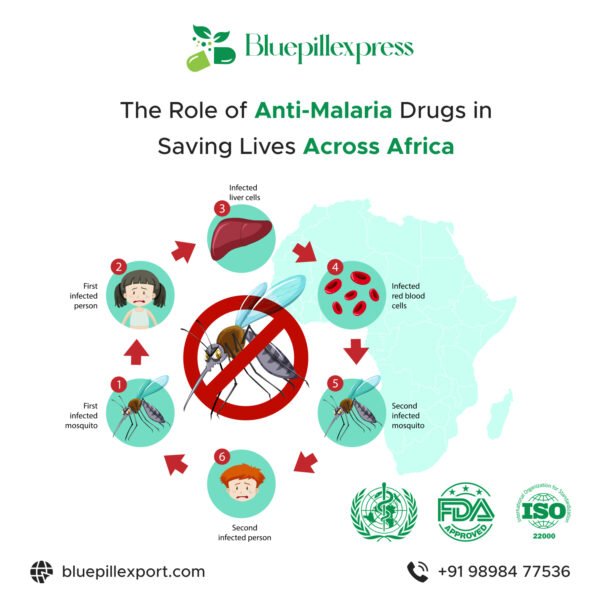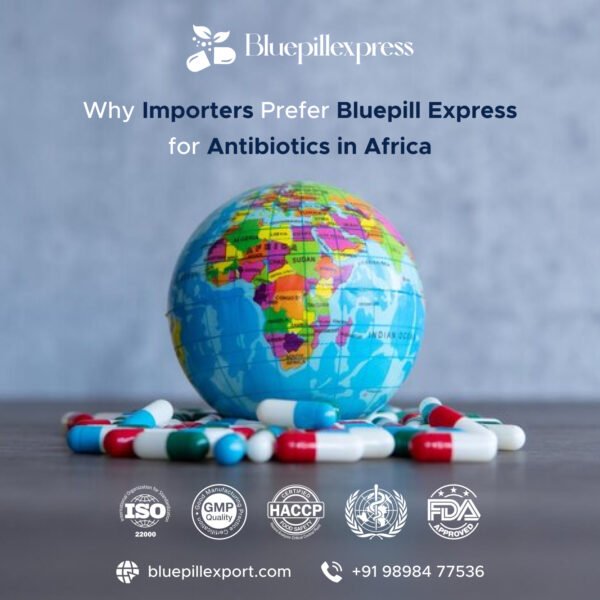Why Global Buyers Prefer Indian Manufacturers for Pharma & FMCG
India has emerged as a global hub for manufacturing, especially in the pharmaceutical and Fast-Moving Consumer Goods (FMCG) sectors. With a unique blend of quality, affordability, innovation, and scalability, Indian manufacturers are increasingly becoming the preferred choice for international buyers. In recent years, globalization, economic integration, and an evolving regulatory landscape have further solidified India’s reputation as a reliable manufacturing powerhouse.
This article explores the compelling reasons behind the growing global preference for Indian pharma and FMCG manufacturers. From cost advantages and regulatory compliance to innovation, infrastructure, and skilled labor, India offers a well-rounded package that few other nations can match.
1. Competitive Pricing and Cost-Effectiveness
One of the most attractive aspects of Indian manufacturers is their ability to produce high-quality goods at competitive prices. The cost of labor, raw materials, infrastructure, and utilities in India is considerably lower compared to Western and even some Asian countries. This enables Indian manufacturers to offer products at prices that are not only economical but also maintain healthy profit margins for global buyers.
In the pharmaceutical sector, India is often dubbed the “Pharmacy of the World”. It supplies over 50% of global demand for vaccines, 40% of generic demand in the U.S., and 25% of all medicines in the UK. Indian companies achieve this through high-volume production, efficient supply chains, and strategic procurement of raw materials.
2. Strong R&D Capabilities and Innovation
Indian manufacturers have significantly ramped up their Research and Development (R&D) activities. This is especially true in the pharmaceutical sector, where companies like Sun Pharma, Dr. Reddy’s, Cipla, and Biocon invest heavily in the development of generic drugs, biosimilars, and novel drug delivery systems.
In the FMCG space, companies like Dabur, Patanjali, and Hindustan Unilever are innovating with herbal formulations, sustainable packaging, and localized product development. These innovations cater to both domestic and international markets, particularly regions seeking Ayurvedic or natural alternatives.
By combining traditional knowledge with modern science, Indian manufacturers are able to offer unique, differentiated products that meet diverse consumer needs globally.
3. Regulatory Compliance and Certifications
Global buyers require suppliers to comply with international standards and certifications such as GMP (Good Manufacturing Practices), WHO-GMP, US FDA, EU EMA, ISO, and Halal and Kosher certifications. Indian pharma and FMCG manufacturers have made significant strides in ensuring compliance with these regulations.
As of recent data:
- Over 500 Indian pharma plants are approved by the US FDA.
- Multiple facilities hold certifications from European Medicines Agency (EMA).
- Many Indian FMCG companies are certified for organic, cruelty-free, and sustainable production.
These certifications not only demonstrate quality but also build trust with international buyers. India’s stringent adherence to regulatory norms helps reduce the risk for global partners and ensures smoother market entry.
4. Robust Supply Chain and Infrastructure
India boasts a diverse and well-integrated supply chain for both pharma and FMCG products. The presence of Special Economic Zones (SEZs), Pharma Parks, and Industrial Corridors enhances the efficiency of production and export.
Major ports such as Mumbai, Chennai, and Visakhapatnam, along with advanced logistics networks and growing digitization in the supply chain, have made it easier for Indian manufacturers to fulfill international orders quickly and efficiently.
During the COVID-19 pandemic, Indian companies demonstrated remarkable resilience in keeping global supply chains running, particularly for essential medicines and hygiene products. This agility has earned them a reputation for reliability in times of crisis.
5. Diverse Product Range and Customization
Indian manufacturers offer a broad and customizable product portfolio. In pharma, this includes generics, active pharmaceutical ingredients (APIs), nutraceuticals, and biologics. In FMCG, offerings range from personal care products and packaged foods to household cleaners and wellness items.
Global buyers appreciate the ability to source a wide variety of products from a single country. Moreover, many Indian companies provide white-labeling and private-label manufacturing services, allowing international brands to sell Indian-made goods under their own labels.
Customization in formulations, packaging, and branding is a major advantage that makes Indian manufacturers highly adaptable to different market demands.
6. Skilled Workforce and English Proficiency
India has a large pool of educated and skilled professionals, including chemists, pharmacists, microbiologists, packaging engineers, and R&D experts. This human capital ensures high-quality production and innovation.
Moreover, the widespread proficiency in English makes communication with international clients smoother and more efficient. Clear communication is critical in areas like product specifications, compliance documentation, and regulatory reporting.
The workforce’s ability to understand and implement global best practices further enhances India’s standing as a reliable manufacturing partner.
7. Government Initiatives and Policy Support
The Indian government has launched several initiatives to promote manufacturing and exports, such as:
- Make in India
- Production Linked Incentive (PLI) Scheme
- Startup India
- Pharma Vision 2020
- Ayushman Bharat
These policies offer financial incentives, tax benefits, and infrastructure support to manufacturers. They also encourage exports and reduce bureaucratic barriers, making India an even more attractive destination for global buyers.
The establishment of bulk drug parks and medical device parks is also part of the government’s vision to reduce import dependency and boost local manufacturing.
8. Strategic Geopolitical Positioning
India’s geographical location provides strategic advantages for global trade. It is situated between the East and West, making it a convenient export hub for markets in Asia, Africa, the Middle East, Europe, and North America.
India has also signed numerous bilateral and multilateral trade agreements to reduce tariffs and improve market access. These include:
- India-UAE CEPA
- India-ASEAN FTA
- SAFTA (South Asian Free Trade Area)
- Ongoing discussions with the UK, EU, and Australia for FTAs
These agreements improve India’s attractiveness as a manufacturing partner and facilitate smoother international trade.
9. Trusted Global Reputation and Brand Value
Over the years, Indian manufacturers have built a strong global reputation for quality, consistency, and trustworthiness. Indian generics are widely used in the U.S., Africa, and Latin America, while Indian FMCG products have found acceptance in markets such as the Middle East, Africa, and Southeast Asia.
The Ayurveda and herbal wellness wave has further elevated the appeal of Indian FMCG products. Indian brands are often associated with authenticity, sustainability, and value-for-money, which resonates with global consumers looking for ethical and effective products.
10. Ethical Manufacturing and Sustainability Practices
Many Indian companies are now embracing green manufacturing, sustainable sourcing, and CSR initiatives. With increasing global awareness of climate change and ethical practices, international buyers are giving preference to companies that prioritize environmental and social responsibility.
Examples include:
- Use of biodegradable packaging
- Solar-powered production facilities
- Fair-trade sourcing
- Water conservation and waste reduction initiatives
These sustainable efforts not only benefit the planet but also align with the values of conscious consumers and buyers.
11. Resilience and Agility in Crisis
India’s response to crises such as the COVID-19 pandemic highlighted its capabilities in ramping up production under pressure. From manufacturing PPE kits and sanitizers to exporting life-saving drugs like Hydroxychloroquine and Remdesivir, India proved to be a dependable partner in global health emergencies.
This level of resilience and agility further enhances trust in Indian manufacturers. Buyers understand that India can deliver consistently—even in uncertain times.
12. Case Studies: Success Stories
Cipla – A Global Generic Leader
Cipla is a key exporter of generic drugs to over 80 countries, including the U.S. and Europe. It played a major role in HIV treatment by offering affordable antiretroviral drugs in Africa.
Dabur – Ayurveda Goes Global
Dabur has successfully taken Ayurvedic products to over 120 countries. Its toothpaste, hair oils, and health supplements are well received in the Middle East, Europe, and North America.
Patanjali – Disrupting with Desi Appeal
Patanjali has revolutionized the Indian FMCG space with its low-cost, natural products. It has also gained traction in global markets seeking organic and herbal options.
Conclusion
The preference for Indian manufacturers in the pharma and FMCG sectors is not incidental—it is the result of years of consistent quality, innovation, regulatory compliance, and value-driven manufacturing. India’s ability to offer cost-effective, customizable, and compliant products at a global scale sets it apart from competitors.
As global demand for affordable healthcare and sustainable consumer goods continues to rise, India’s role as a preferred manufacturing destination is set to grow even further. International buyers looking for a dependable, innovative, and scalable partner will find Indian manufacturers to be not just suitable—but ideal.






 IndiaMart
IndiaMart
 FIEO
FIEO









